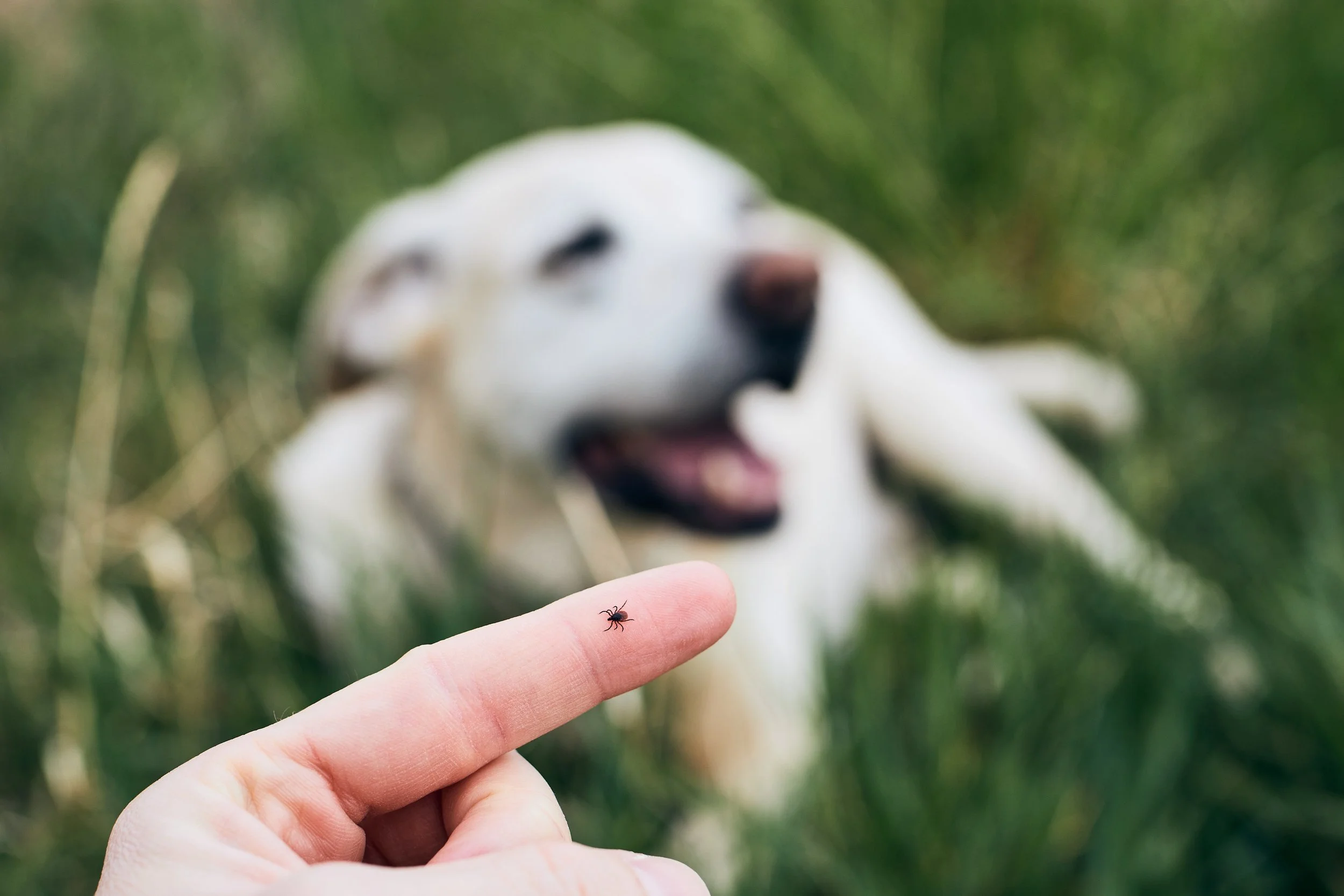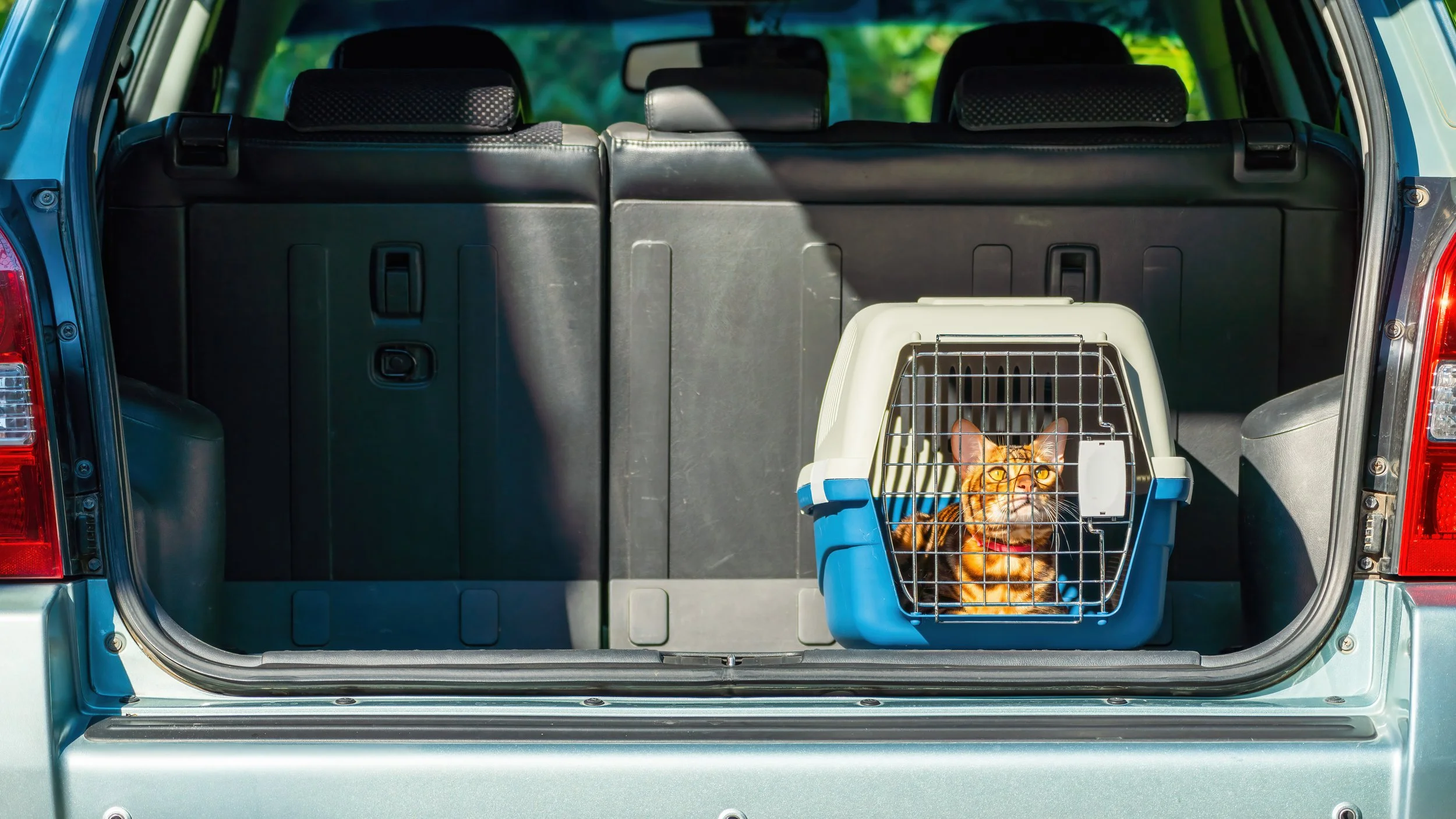Parasite prevention for travelling pets
‘Take only photographs, leave only footprints’ is a well-worn aphorism for good reason — no one wants to bring back an unwanted parasite after a holiday, and animals are particularly high risk for picking these up. Many parasites transmit infectious diseases to your pet, some of which are also contagious to humans. As with most things, prevention is much easier than cure, and with some forward planning you can protect your pet while travelling.
‘Take only photographs, leave only footprints’ is a well-worn aphorism for good reason — no one wants to bring back an unwanted parasite after a holiday, and animals are particularly high risk for picking these up. Many parasites transmit infectious diseases to your pet, some of which are also contagious to humans. As with most things, prevention is much easier than cure, and with some forward planning you can protect your pet while travelling.
Although there is no legal requirement for parasite prevention with travelling (except tapeworm treatment for dogs on return to the UK), it’s important for the health of your pets, the people they are in contact with, and for the wider UK population. Several novel tick species and infectious diseases have already been introduced to the UK via pet travel, and sadly I’m treating more and more pets in London who have picked up lifelong infections overseas. The risk is likely to increase as pet travel becomes more common and climate change worsens.
Which pets are at risk?
Preventative measures should be considered for all travelling pets, but the level of risk and local parasites are highly dependent on your destination. Speak to Pet Nomads or your regular vet for tailored advice.
It’s worth noting that animals in the UK are also exposed to various internal and external parasites. It’s important to continue parasite prevention throughout the year, which makes it easy to ‘top up’ extra protection where needed when travelling.
Which parasites are a concern?
Fleas - super common worldwide, including in the UK (anyone with pets can attest it’s been a terrible year for fleas); cause irritation and allergies
Mosquitoes - present worldwide, but higher risk in warmer climates; transmit heartworm and other diseases in endemic areas
Ticks - present worldwide but different species have different distributions; transmit Lyme disease and many other diseases
Sand flies - present in southern Europe and most of the sub-tropics and tropics; carry leishmanaisis which requires lifelong treatment
Heartworm - endemic in most of the world except the UK, including southern France, and spread by mosquitoes; may be fatal and requires intense treatment
Lungworm - present worldwide, including the UK; may be fatal
Sadly this is not an exhaustive list, but these are some common examples.
What preventative measures can I take?
Insecticide-impregnanted collars are longlasting and effective to repel fleas, ticks, mosquitoes, and sand flies
Monthly prescription wormers (in spot-on or tablet form) containing milbemycin or moxidectin are the only way prevent lungworm and heartworm
There are a variety of chewable and spot-on products available from your vet which prevent ticks
Keeping pets indoors at dawn and dusk will reduce sand fly and mosquito exposure, as these are key biting times
There is a vaccine to prevent leishmanaisis in dogs, but is not very effective and difficult to obtain in the UK currently — repelling sand flies more important
Check pets (and humans!) thoroughly for ticks after walks in long grass and woodland; bring a tick hook with you and check out Youtube for videos on how to remove them safely
These measures are best used in combination as nothing is 100% effective. The advice on products is intentionally general — speak to a vet who has examined your pet for a safe and effective protocol (usually a combination of products).
It’s important to be aware that travel carries some health risks for pets, but these can be minimised. With some prior research and precautions, you can enjoy your adventure knowing your pet is protected.
Keeping pets calm on long journeys
One of the most common questions asked by owners leading up to travel is, ‘Will my pet be stressed during the journey?’. Alongside logistical and financial concerns, this can cause anxiety ahead of the big trip. Fortunately, animals are adaptable, and there are lots of things you can do to keep your furry friend comfortable and relaxed along the way.
One of the most common questions asked by owners leading up to travel is, ‘Will my pet be stressed during the journey?’. Alongside logistical and financial concerns, this can cause anxiety ahead of the big trip. Fortunately, animals are adaptable, and there are lots of things you can do to keep your furry friend comfortable and relaxed along the way.
Logistical considerations:
If you have multiple transport options to reach your destination, consider which will be best for you and your pet, e.g. a longer drive vs. a shorter flight. When flying, be aware only certain airlines allow pets to travel in the cabin, whilst others only carry pets in the hold.
For car travel, ensure your pet is safely secured in a carrier for cats and small dogs, or a harness for larger dogs. In advance of your trip, gradually introduce your pet to the car and harness/carrier little and often, using lots of positive reinforcement such as praise and treats.
Carriers which open from both the roof and front are preferred (this also will also make vet visits much easier). Bigger is better: it should be of sufficient height to allow your pet to stand up, and length to allow them to lie down. If flying, check airline carrier specifications too.
Bringing your pet’s favourite bedding or a familiar piece of clothing will help make them comfortable.
For journeys more than an hour or two, bring along your pet’s food and water, plus a litter tray for cats. Ensure you make frequent refreshment and toilet stops.
Supplements and medications:
There are plenty of ‘calming’ supplements available over the counter. Some are better than others and few have great evidence, but they are safe and do seem to work for some animals. I like Zylkene on the day of travel (plus one day either side).
Pheromone sprays such as Apaptil (for dogs) and Feliway (cats) are proven to reduce anxiety, and can be sprayed onto bedding during the journey.
For pets who get very distressed, speak to your regular vet about short-term anti-anxiety medication for the journey. For safety reasons, airlines will not accept animals travelling in the hold who have been given sedative medications.
Motion sickness can contribute to anxiety associated with the car, particularly in puppies. There are several medications for this available from your regular vet.
International travel with animals is no small undertaking, but most owners are pleasantly surprised by how well their pets fare. And with a little preparation in advance, everyone involved can have a more relaxed journey.


